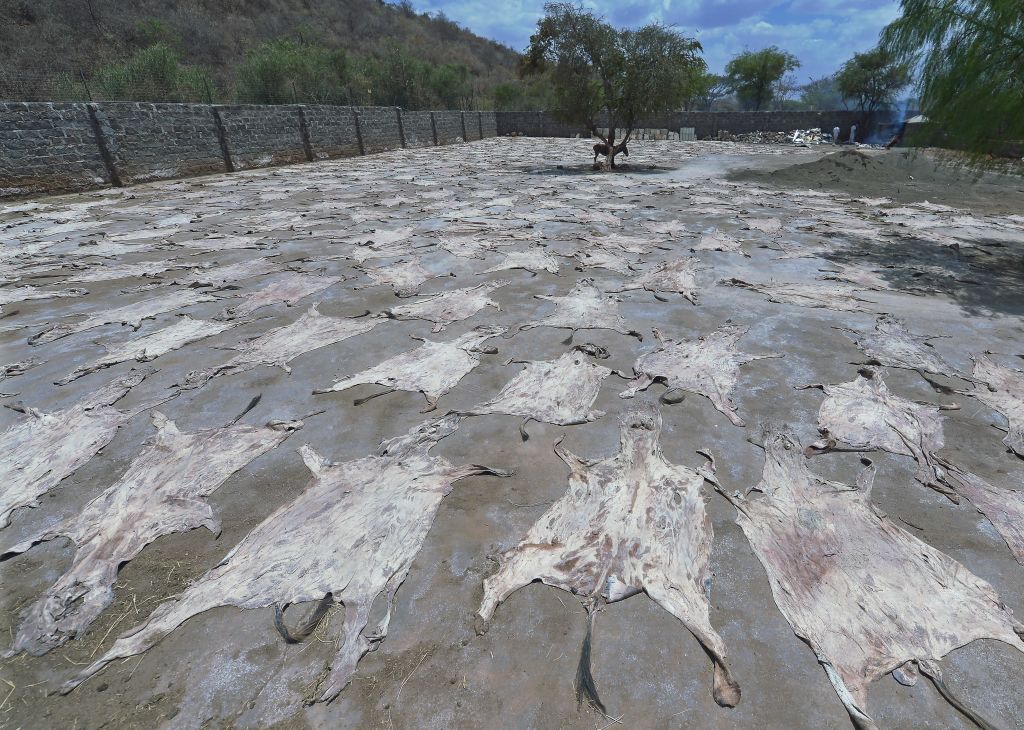ADF STAFF
Many rural West African communities rely on donkeys as a source of labor, transport and income.
Traditional Chinese medicine values donkeys for their skins.
In recent years, China has been unable to meet its high demand for ejiao, a gelatin created from boiling donkey skins.
So, China has turned its attention to Africa, where donkeys now suffer along with their owners, as theft, illegal slaughtering and trafficking increase.
“The donkey slaughter is causing a huge impact on livelihoods at the rural level,” Dr. Monicah Maichomo, a Kenyan livestock researcher, told Devex.
Despite the absence of scientific evidence, ejiao is used in traditional Chinese medicine as a remedy for a variety of ailments including dizziness, dry cough, chronic fatigue, insomnia and cancerous tumors.
Every year, millions of donkeys are slaughtered worldwide. The process is crude and cruel, often using a hammer or blade.
China’s demand is estimated to be about 5 million skins per year, while the country’s annual supply is fewer than 1.8 million.
Once home to the world’s largest donkey population, China has seen it drop by more than 76% since 1992.
Today in West Africa, donkey populations are crashing as well.
- An animal welfare charity reported that one Chinese company in Mali slaughters 300 donkeys a day to export their skins to China.
- In Burkina Faso, about 19 metric tons of donkey skins were exported to China between October 2015 and January 2016.
- In Niger, skin exports increased from 27,000 to 80,000 between 2015 and 2016.
Simon Pope, tactical response lead at The Donkey Sanctuary, said Ghana plays a key role in the West African trafficking of donkey skin.
“Donkeys can be transported from as far as North Africa, Chad and Cameroon, through Burkina Faso, where a large market exists,” he told South African newspaper The Daily Maverick.
“From there, donkeys are transported to Ghana where they are slaughtered. It is estimated that 100,000 donkeys are slaughtered there every year, and their skins are exported to China and Hong Kong.”
In June 2022, Tanzania became the latest African country to ban the slaughter of donkeys for the skin trade, saying the country’s population was at risk of extinction.
Several other African countries have bans, including Burkina Faso, Niger and Nigeria.
A 2016 memorandum by the Economic Community of West African States established that member countries should not slaughter or export donkeys for trade. Because it isn’t law, however, the edict is not enforceable.
Meanwhile, theft and trafficking in West Africa continue to increase.
“While some West African countries such as Senegal have taken some measures to curb the trafficking of donkeys, Ghana remains silent,” Pope said.
“While on paper Accra has put in place some law enforcement, this is never applied. There are just a handful of records of donkey skin and meat exports from Ghana to China, the most recent in 2021.”
Shipments of donkey skins also are used to hide other illegal animal parts and illicit drugs.
In its May 2022 report, The Donkey Sanctuary stated that there is a “vast online network of organized criminals offering donkey skins for sale, often alongside other illegal wildlife products including rhino horns, pangolin scales, elephant ivory and tiger hides.”
Marianne Steele, chief executive of The Donkey Sanctuary, said trading and trafficking donkey skins should be halted immediately.
“The global trade in donkey skins is cruel and inhumane, unregulated and unnecessary, which results in suffering for donkeys and donkey-dependent communities on a devastating scale,” she said in a November 2022 statement.
“I would implore consumers, governments and the wider public to take notice of the risks to animal and human health.”

